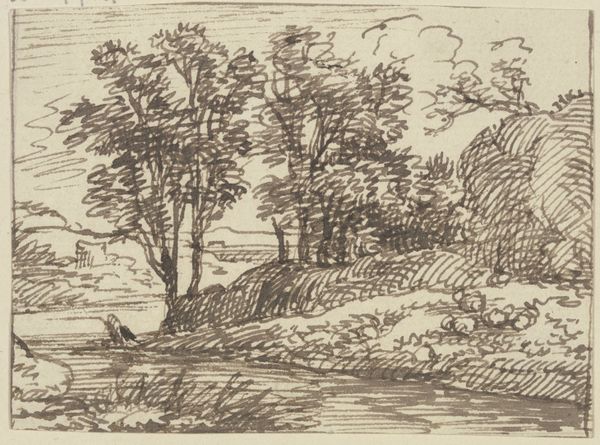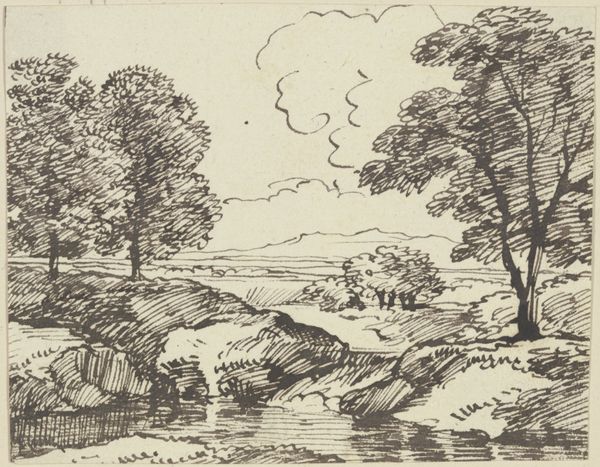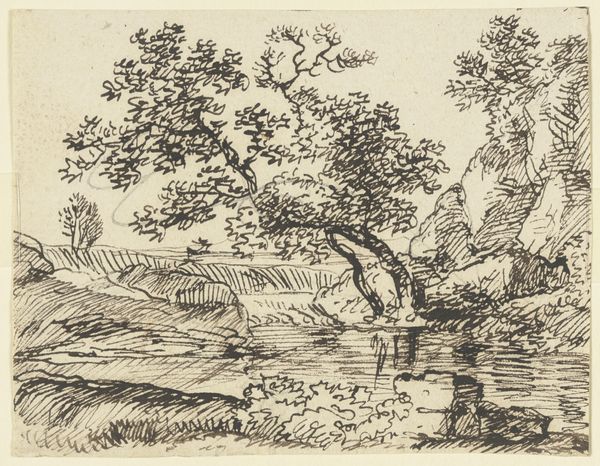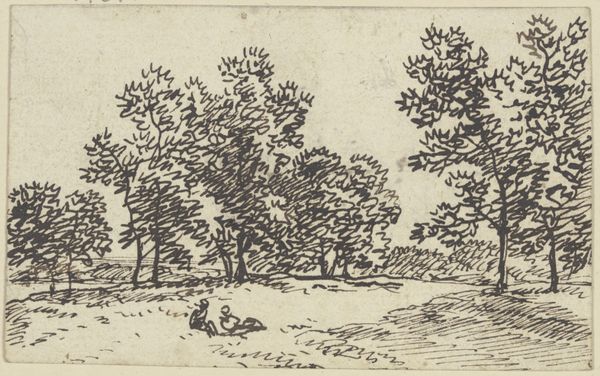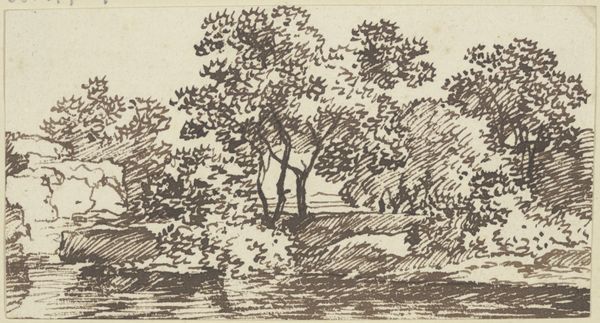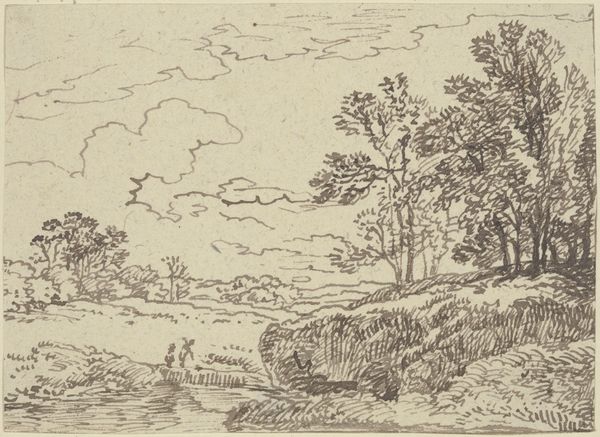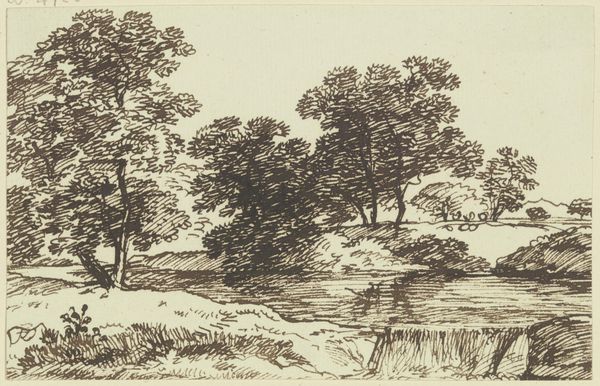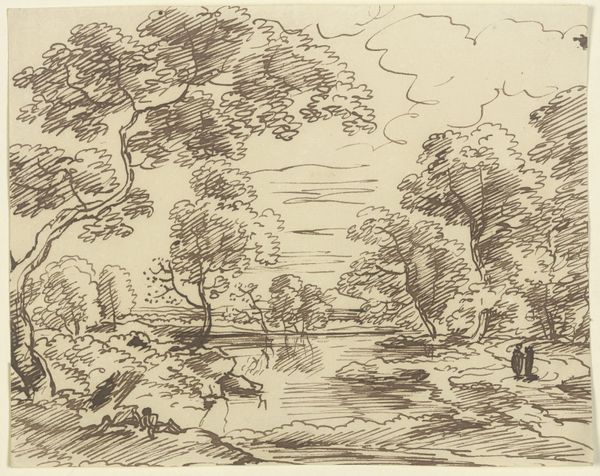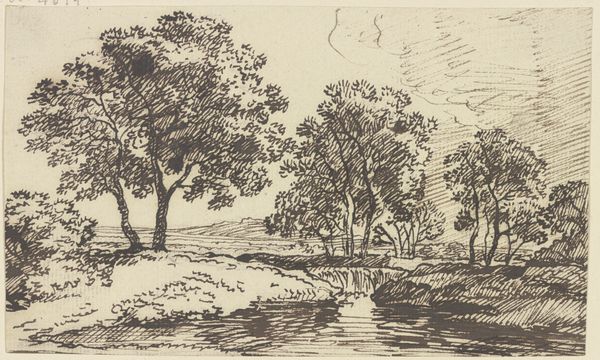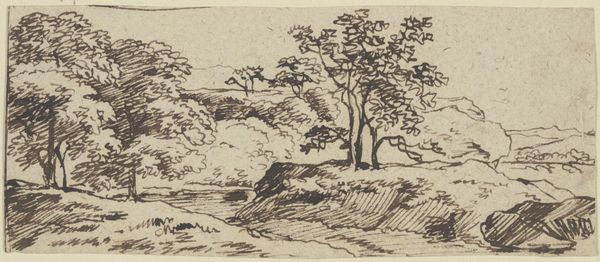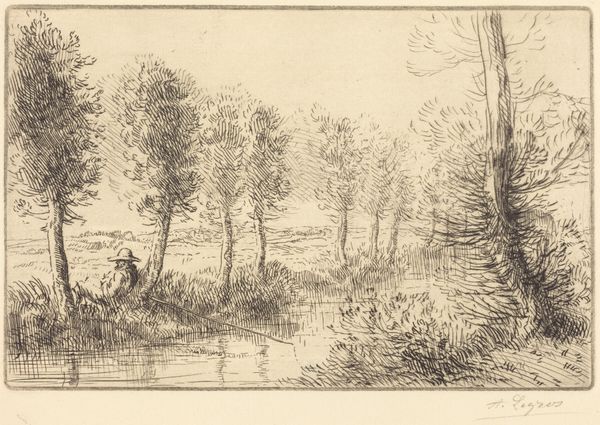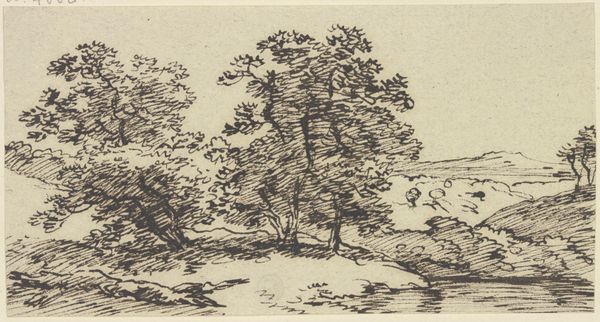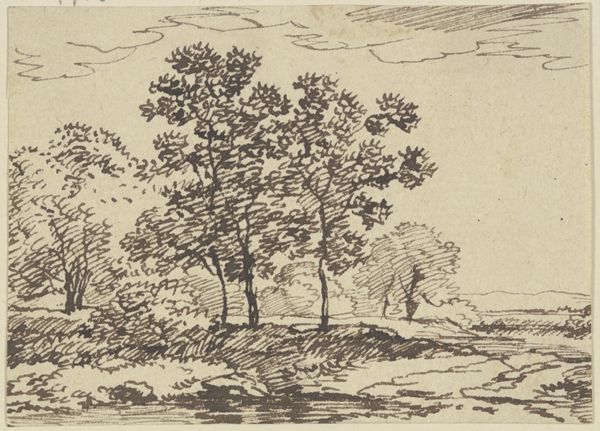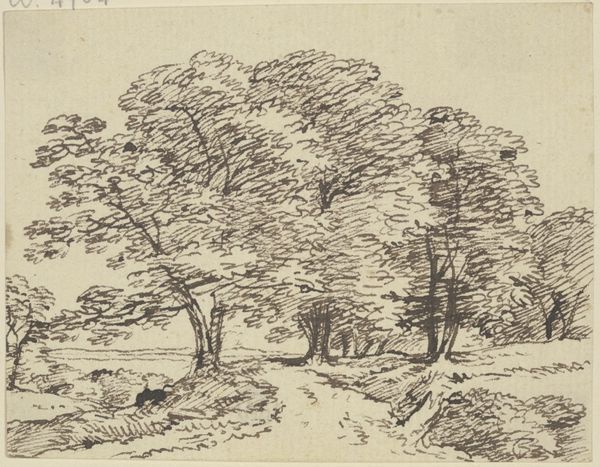
drawing, ink, indian-ink, pen
#
landscape illustration sketch
#
drawing
#
ink drawing
#
pen drawing
#
mechanical pen drawing
#
pen illustration
#
pen sketch
#
landscape
#
ink
#
german
#
ink drawing experimentation
#
sketch
#
indian-ink
#
romanticism
#
pen-ink sketch
#
15_18th-century
#
pen work
#
sketchbook drawing
#
pen
Copyright: Public Domain
Editor: Here we have "Group of Trees," a pen and ink drawing by Franz Kobell, currently housed at the Städel Museum. There's something quite raw and immediate about this sketch. What do you see in this piece? Curator: What strikes me is how this seemingly simple landscape embodies a much larger socio-political shift. This work, like many landscapes of its time, emerged during periods of immense upheaval. Consider the impact of the Enlightenment and the rise of individualism. Do you see how Kobell uses the natural world not just as scenery, but as a reflection of inner emotional states, a contrast to the industrial revolution? Editor: Yes, I do notice that. The wild, almost uncontrolled strokes of the pen seem to mirror a kind of untamed emotionality. The human figure is totally absent. Curator: Exactly! The absence becomes a powerful statement. This landscape becomes a space for reflecting on individual identity in relation to the broader world. In what ways can this artwork engage with dialogues around land ownership, resource extraction, and the power dynamics inherent in our relationship with the environment? What impact does this leave on our appreciation of Romanticism and the Industrial period? Editor: I hadn’t thought about it that way, but it really puts the piece in a different perspective. It's more than just a pretty landscape. Curator: Precisely. By interrogating the context in which these landscapes were created, we can start to challenge established art historical narratives. This allows us to see the ways art engages with broader systems of power and meaning-making. We need to examine how we read and respond to representations of the natural world and consider a wide diversity of standpoints in that examination. Editor: That makes me look at not just the trees but the meaning behind them and how they fit in society back then and now. Thanks!
Comments
No comments
Be the first to comment and join the conversation on the ultimate creative platform.
